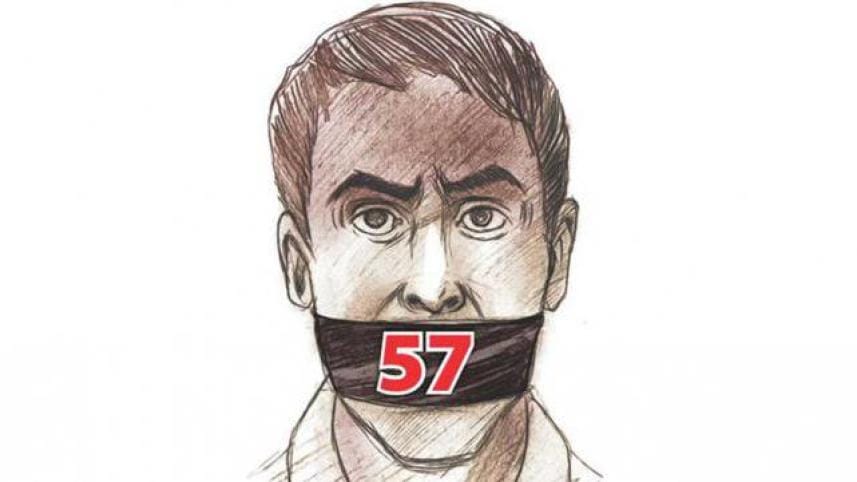Section 57 by another name

It has been reported that within the first seven months of this year, around 300 cases were filed under the controversial Section 57 of the ICT Act. And yet, now when the government has decided to scrap the provision from the law, it does not bring any relief. For a while now, we have been speaking out about a provision bearing striking resemblance to Section 57 which has been included in the draft Digital Security Act. Now there is talk of the draft law being placed in the parliament the coming session, intact with the provision.
The issues with Section 57 and the similar provision in the Digital Security Act have been much discussed. The fear that the vague terms of the provisions can be used to curb people's freedom of expression and free speech is not unfounded. Journalists and newsmen have been harassed and arrested using the section as have others for expressing their opinion on social media platforms. We have also pointed out how the punishments stipulated are disproportionate to the crimes. So while we would have loved to praise the government's decision to scrap Section 57 from the ICT Act, it baffles us why another similar provision needs to be introduced in the new law.
Critics of Section 57 and the provision in the new draft law are right when they say that these provisions are not in line with the nature of laws in a democratic society where freedom of expression and opinion are not criminalised. Using excuses of national security and interest, these provisions punish and restrict the right of a citizen to critique. And while we understand the need for a law to address cyber crimes, a provision which threatens to undermine basic rights and the press cannot be part of it. We urge that as Section 57 is scrapped from one law, it not be introduced by a new name in another.



 For all latest news, follow The Daily Star's Google News channel.
For all latest news, follow The Daily Star's Google News channel.
Comments